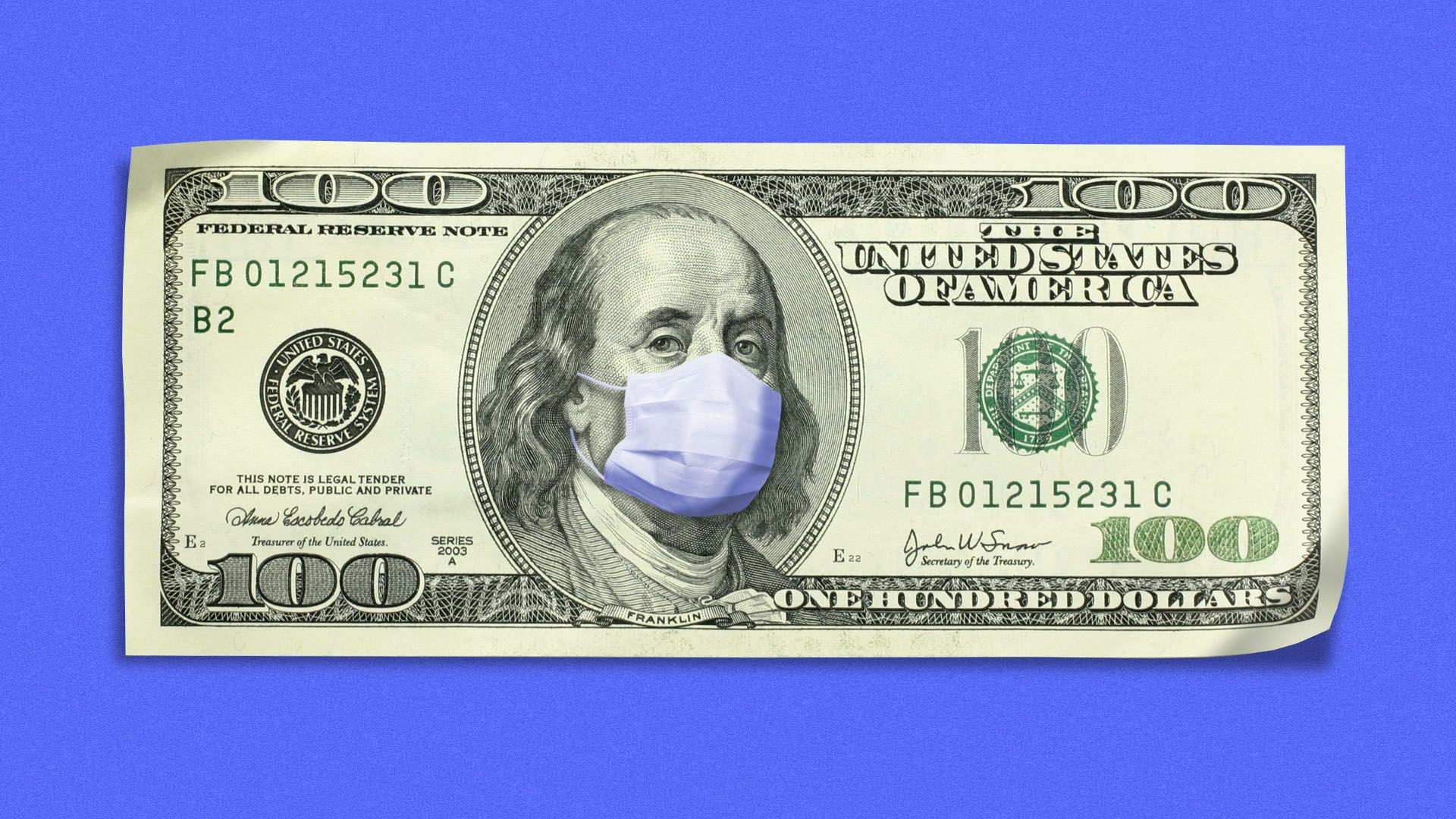The coronavirus stimulus' unknown cost
Add Axios as your preferred source to
see more of our stories on Google.

Illustration: Sarah Grillo/Axios
Despite what you've heard from congressional Republicans over the last decade, there's no limit to how much the government can spend — and that'll become evident as the federal government prepares its "phase three" coronavirus stimulus package.
Why it matters: U.S. government spending is about to skyrocket, with checks going out to individuals, loans being handed to companies and other attempts to stanch the coming economic pain.
How it works: When Congress passes a spending bill, Treasury borrows all of the necessary funds by issuing Treasury bonds.
- There is no debt ceiling at the moment — it was suspended in last year's budget deal — so Treasury can issue as many new bonds as it wants.
- Because the U.S. government is considered the safest borrower in the world, there is always ample demand for Treasury bonds.
- The bonds are sold to banks, and if the banks don't have enough money to buy them, the Federal Reserve will lend them as much as they need. The banks then turn around and sell the bonds, at a small profit, to investors from around the world.
The big picture: The stimulus' impact on the national debt isn't a big worry on Capitol Hill, several Democratic and Republican aides tell Axios.
- "Folks aren't super concerned about debt right now — they just want to act. … And we normally would be [concerned], but this is uncharted territory,” one Senate GOP aide said.
- "We’re going to borrow and the debt will go up,” another GOP aide said, adding that there haven’t been many discussions about the longer-term economic impact. "The truth is that we need to spend money to help people right now."
Worth noting: The nonpartisan Congressional Budget Office has not scored either the "phase two" plan or "phase three" proposal, so their ultimate cost to the government is still unknown.

